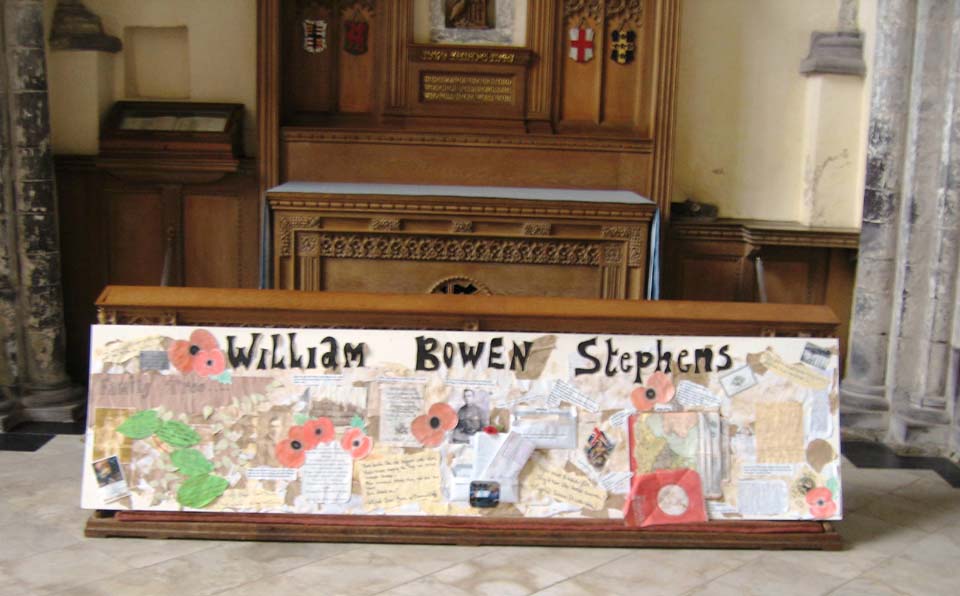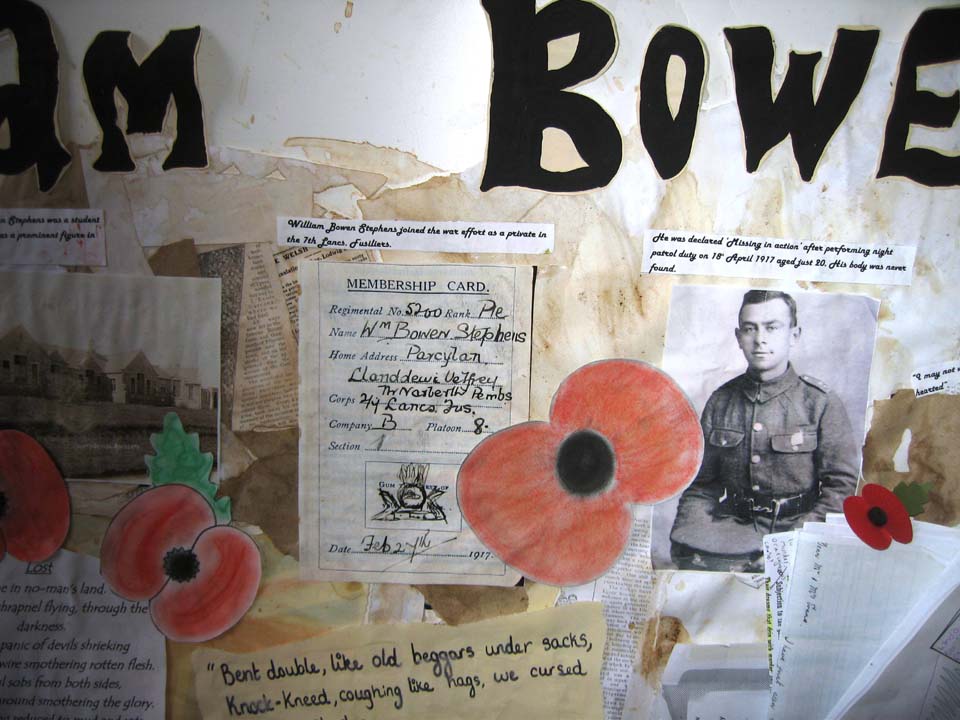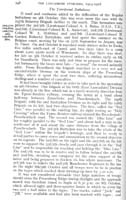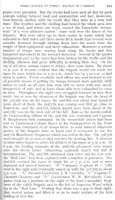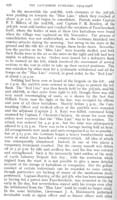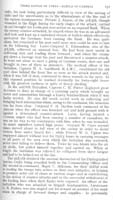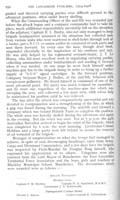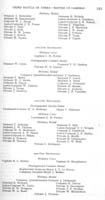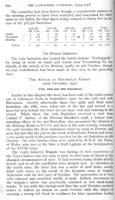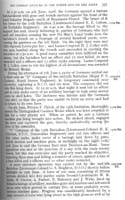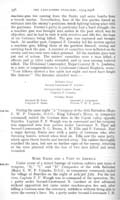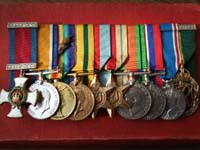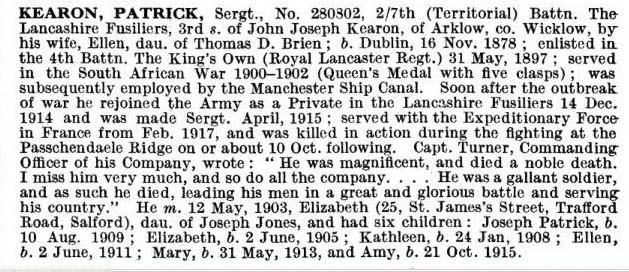|
Ypres October 1917
My Experiences
by
Pte H Hilton
We left Winnezeele on the morning of Oct 5th and went about 3 miles outside
Ypres (in motors) about 3-30pm, we then marched until 5-0pm where we had
bread and water (this was our tea) we moved off again and were marching
through mud 9-0pm, where we broke off to wait for the bombers coming with
guns, they arrived about 3-0am on the 6th (after waiting 6 hrs in the
rain) we got the guns and arrived at our bullets (which were shells half
full of mud and water) about 4-0am and were told to get down to sleep
the best way we could. I got down in a shell hole and slept for two hrs
and woke up wet through and covered with mud and had to walk about to
keep warm, we had a biscuit and a drop of tea (without milk or sugar)
for the day, we were shelled out 3 times that day.
We went on a fatigue that night carrying spades up the line, up to the
knees in mud and water, we got back and slept the best way we could. On
the 7th we were a bit lucky, we got a quarter of a loaf for breakfast
and a drop of tea, it had been raining everyday for the last week and
we were in a terrible state what with the state of the ground it was nothing
but shell holes and the rain and mud it was awful.
We got no dinner and had a biscuit and a drop of cold tea for our tea,
we were shelled out 3 times that day, I slept in an old motor lorry on
the road that night. On the 8th we had breakfast (1/4 loaf and tea) and
went on a fatigue to bring biscuits, bombs and ammunition from the brigade
dump 2 miles away and finished about 4-0pm (no dinner) then we were told
to pack up ready for going in the line, we sat ready and marched about
200 yards and had to wait there until 6-0pm in the pouring rain, we then
got rations for two days (1/2 loaf and 2 tins of bully beef) we moved
off at 6-30pm and were marching until 5-0am on the 9th (through pouring
rain and up to the knees in mud) when we got to the assembly place, the
barrage started immediately and we went into action without a minutes
rest, after marching all that time, (I felt like having a good sleep instead
of going over the top) and the fun started, Fritz opened out and was placing
his shells all around us, as soon as we started he wiped a gun team out
with one shell, the greatest confusion reigned, the officers did not know
whose the objective was and we were wandering all over the place, it was
one great mass of shell holes and we were walking on the edge of shell
holes filled with the bodies of our men and Fritz's and the smell from
the dead bodies was terrible, the sights were enough to make anyone sick
without the smell. However we kept on going (I don't know how) and we
got to the railroad and Fritz's were coming in in hundreds some wounded
and some not, there were lads there straight from Berlin only 16 yrs old
and they had very little training. When the prisoners were coming in Fritz
was sniping his own men before letting them fall into our hands. We went
down the railway with shells falling all around is and scores of dead
on either side of us. I don't know how I got to the bottom of the railway,
for Fritz was sniping and had a machine gun on us, he was wiping our men
out by the score, I got to the bottom somehow and dodged into a shell
hole which had a big pile of stones at the front and I felt a bit safer
then, with having the stones for protection although there were shells
and bullets flying all around and men were dropping everywhere shot through
the temple, Fritz was very keen on his sniping there, but he had the advantage,
he was on the ridge in front and we were in the hollow so he could see
all that we did. He made two counter attacks in the morning and afternoon
and was driven back by the machine guns. About 4-0pm about 50 of his planes
came over, flying just over our heads and firing their machine guns on
us and the worst of it was we could not fire back. At 5-0pm he made a
counter attack in mass and drove us back a bit, so we had to take it back
again, but there is one thing about Fritz he would not face the bayonet,
it is his artillery that does all the damage. The Captain and a Lieutenant
were wounded this day and our platoon officer was badly wounded at night
and died later on and he was a gentleman and I was very sorry to hear
he had gone west. Nothing happened during the night only sniping and artillery
firing. We stuck it another day, we were eating Fritz rations what we
had found and drinking water out of shell holes, but we pulled through
somehow and we were relieved in the early morning of the 11th and we were
marching all morning until 8-0am, where we had breakfast, as much bread,
bacon, porridge and tea as we could shift and we needed it I can tell
you, (we had breakfast outside the asylum in the city of Ypres) I have
not seen a place like it before and I have seen many places, it is a big
city and there is not a building left standing everything is smashed up.
We moved from Ypres at 6-0pm in motor wagons and arrived at Winnezeele
again at 10-0pm, so that finished our exciting experiences at Ypres for
the time being at any rate
Pte H Hilton 281856
2/7 Lanc Fuss
|
